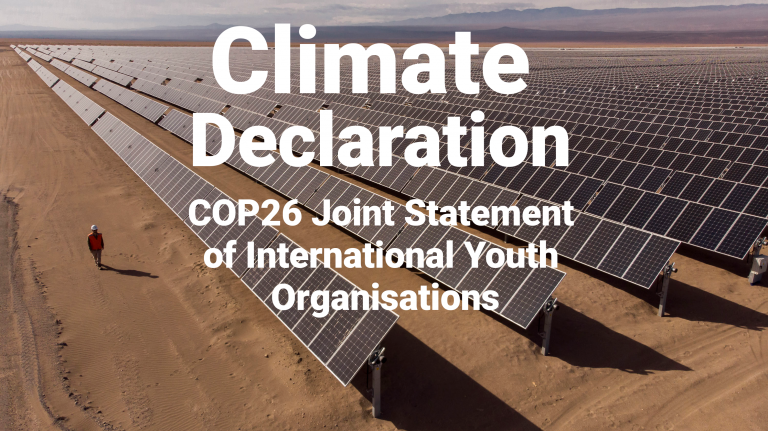Engineers have designed and deployed appropriate technologies that solve the problems of global poverty, but poverty persists. The abundance of quality, low-powered, low-cost devices, however ingeniously conceived, may not have made much of a dent in the number of people who earn less than (USD) $5 per day, Dr. Evan Thomas argues in the journal Sustainability.
See Toward a New Field of Global Engineering in Sustainability 2019
Dr. Thomas, who heads the Mortenson Center in Global Engineering at the University of Colorado Boulder (USA), suggests that engineers are not having their anticipated impact on poverty. The essay attempts to shove engineers out of their comfort zones and calls for a new phase in engineering for global development. From the article:
Over the past nearly fifty years, appropriate technology and community participatory development has failed to eliminate or even substantially reduce the number of people living in poverty in developing countries.
…Many engineering efforts on a community or product scale have required either volunteer or low-salaried engineering labor, which has the effect of reducing the professional depth of the contributions of engineers to global development. Meanwhile, larger-scale infrastructure efforts are often the purview of major engineering and technical contractors, [that cannot address] systemic development challenges.
…An additional chronic limitation is the under-representation of engineers who are from low- and middle-income countries. Development programs instead often rely on short-term engagements by western engineers.
While case studies and attractive examples of successful products and services are laudatory, the reality remains that these are piecemeal patches to endemic structural challenges.
In response, Dr. Thomas proposes the rise of the Global Engineer. With the new title come new responsibilities. Engineers working in global development should measure the impact of introduced technologies and infrastructure, but they should also measure the detrimental effects of national and global policies that perpetuate poverty, Dr. Thomas writes.
This essay doesn’t announce the death of appropriate technology, but rather suggests that the time has come to update the practice. That means including technologies that the father of the term, E. F. Schumacher, likely would have shunned. Mobile technologies, for example. Satellite data and cheap imports. The argument gathers threads from this sector’s recent history that, together, look like a trend. This website, Engineering for Change, has published opinions in favor of the spectrum of options, from locally manufactured products made of local materials, to high-tech prototypes for delivering Wi-Fi, mapping data and more. Without calling for an end to the development of small-scale, local products, Dr. Thomas points out that the pool of technology used in global economic development has expanded. And, he writes, Global Engineers should use the range of technologies available to them to document the harm that global economic and political systems are inflicting on the world’s poor. The word “activist” does not appear in the essay, but it is its natural conclusion. This is an opening shot in the rise of the activist engineer.
Dr. Thomas’ critique of the current state of global development engineering could read as a self-deprecating note to himself as well as to his global peers. One of those peers, Dr. Cristian Birzer, picked up that thread in a comment about the essay.
“At the end of the second section is a rather brutal summary on small-scale support providing no dent to the system that results in poverty. Knowing the author’s other work, which appears to have been many small-scale solutions that show impact to individuals, this was initially a surprise, but it is uncomfortably true,” says Dr. Birzer, who is the Senior Lecturer in Mechanical Engineering at the University of Adelaide (Australia) and a Contributing Editor at E4C.
“No matter how much is done on cookstoves or WASH [Water, Sanitation and Hygiene] systems; on small-scale power distributions or suitcase-based medical kits; people will still live in poverty. The technology we develop as engineers addresses the symptoms of poverty, not the cause. At small scales, technology can help with capacity building – opportunities for schools and education, manufacturing and industry, health and improved quality of life. But the policies and systems need to change. The engineering profession can significantly help address the symptoms and cause, but without awareness, our capacity is limited,” Dr. Birzer says.
Generalizing this line of criticism, one implication is that engineers should think bigger. This is not the first time that experts in this sector have leveled that charge at themselves. The Institute of Transformative Technologies was founded, in part, on the premise that the global development engineering sector is focused on small-scale projects and dependent on poorly funded social entrepreneurs to do the kind of work that traditionally has required the effort of entire nations. Things like healthcare, and water and sanitation infrastructure. The Institute’s response has been the 50 Breakthroughs, a vetted list of technological needs upon which the world can focus research and development.
See 50 Breakthroughs Set the Agenda for Research into Global Development Technology
It’s debatable that technology is not ending poverty. From a different perspective, the statistics with which Dr. Thomas supports his conclusions could be read as a success story. He writes that the fraction of the world’s population living in extreme poverty has decreased in the past 50 years while, due to population growth, the absolute number of people has remained the same. That statement, of course, could be seen as a testament to the efficacy of the past 50 years of work in decreasing the rate of global poverty. Few have believed it was going to be a short journey to global financial equity. But the criticism is fair. And engineering may be one of the few professions that would welcome new tools and new methods, especially if they promise greater efficiency.
Read the opinion here: Toward a New Field of Global Engineering in Sustainability 2019


I think Engineers need to not only think broader – i.e. at the related systems causing the poverty, but also AT SCALE, i.e. at the scale of the problem. For example, a small scale, locally built water filter may be the perfect solution for the village you are working with, but have you thought about the next village – if they can’t build it themselves without access to the volunteer engineer, then the work may be great for your personal experience, and even for that village, but has essentially zero impact on poverty. In fact the impact may be negative, as the next village may decide to wait for a voluntourist to come and build them one instead of investigating solutions themselves.
Appropriate technology’s main failure case is IMHO failure to thing through the training and maintenance issues at scale, for example to think through how to empower some local organization to build one of the filters for every village in a district, or to empower a training organization to train these local organizations over an entire country. We need bold, thinking, not something that looks good on a resume, or helps write a paper for a PhD.
Yes, but. We may be helping with improvements in ways, that aren’t measured in the official statistics. Many of the systems we work on, IF they are done in co-operation with the community are both repairable and duplicatible by/in the community. If those actions only require local materials and labor, there may not be a significant money cost or direct economic benefits while still improving lives of the community. For example, latrines (usually easily duplicated at a community level) don’t make a community more wealthy in monetary terms (official measure of poverty), but the lives of the community are improved. So improving lives may not always be reflected in those official statistics. Measurement is always limited by the tools used to do it.
I think Lawrence and Mitra have valid points to the argument. Scale, capacity building, how we measure poverty, all need to be considered. Like the solutions developed, they can’t be in isolation, otherwise, there is too much risk of failure.
Poverty is more properly an economic than engineering problem. The basis of economic success and growth is in property rights, rule of law, free trade, free markets… multiplied by low cost government, transportation, communications… Engineering tends to be involved in higher levels of complexity. We build the tools that make the products, or increasingly: build the tools that build the tools. IOT functionality is orders of magnitude up the value-add food chain.
Thanks to market development in Asia, poverty reduction has been fabulously successful over the past few decades. If the perpetual war in the mideast can ever be resolved or at least reduced, african dictators deposed, and india’s license raj curtailed; the entire planet will have some experience with personal freedom and responsibility. Wealth building takes a generation. The two best times to plant this tree are 10 years ago and today.